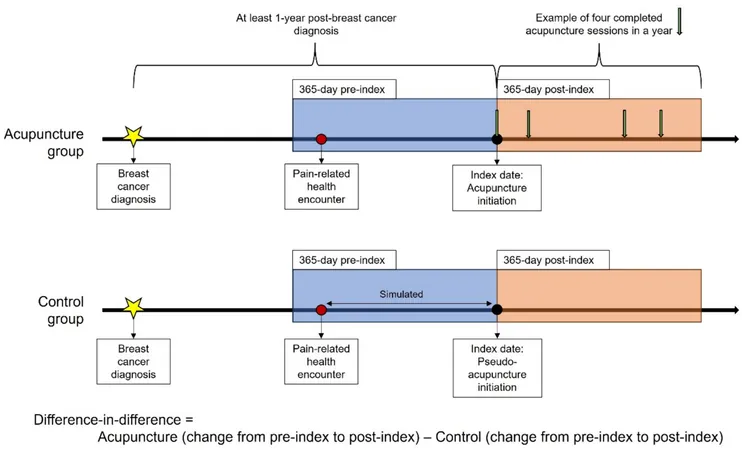
Acupuncture's Groundbreaking Role in Reducing Pain and Healthcare Costs for Breast Cancer Survivors
2024-09-16
Summary
A recent comprehensive study has shed light on the significant impact of acupuncture on pain management and healthcare resource utilization among breast cancer survivors. With an increasing number of survivors seeking alternative therapies, this research highlights the potential benefits of acupuncture in reducing reliance on analgesics and overall healthcare expenses.
Background
Breast cancer patients often grapple with chronic pain resulting from the disease and its treatments. Conventional pain management strategies, primarily opioids and non-steroidal anti-inflammatory drugs (NSAIDs), come with their own set of complications, including side effects and potential dependency issues. As integrative medicine gains traction, acupuncture is being recognized for its potential to alleviate pain, leading to reduced use of traditional analgesics.
Study Design
Utilizing data from a large US commercial claims database, researchers focused on breast cancer survivors aged 18-63, who were at least one year post-diagnosis and experiencing pain. They compared the analgesic use and healthcare costs of individuals receiving acupuncture against those who did not, employing the difference-in-difference (DID) method for analysis.
Key Findings
Out of 16,624 survivors, only 495 (3%) opted for acupuncture treatment within the studied timeframe. The median age of these patients was 55 years, and 98% reported experiencing musculoskeletal pain. Notably, opioid use among acupuncture patients decreased from 29% to 19%, while NSAID usage went down from 21% to 14% post-treatment. The reductions were statistically significant, indicating that acupuncture could be an effective method for managing pain.
Moreover, patients who underwent ten or more acupuncture sessions experienced a remarkable 26% decline in total healthcare costs, equating to an average savings of $15,513 post-acupuncture initiation. In contrast, patients receiving fewer sessions did not see similar cost reductions, which raises intriguing questions about the optimal frequency and nature of acupuncture treatment.
Acupuncture Treatment Details
The study documented the average cost of acupuncture sessions at around $85, with patients spending nearly $920 annually on treatment. Interestingly, the treatment frequency varied widely, with many patients experiencing significant relief with just a handful of sessions.
Implications for Healthcare
The findings suggest that acupuncture may offer a viable alternative for many breast cancer survivors seeking to manage pain without escalating reliance on medications. The promise of lower healthcare costs and reduced analgesic use emphasizes the need for broader insurance coverage for acupuncture services, particularly as the population of cancer survivors continues to grow.
Conclusion
This pioneering study is one of the first to evaluate acupuncture's real-world effectiveness explicitly within the context of cancer pain management. While more research is necessary to fully grasp the extent of its benefits, these initial findings could transform how healthcare providers and patients approach pain management in the years to come.
What's Next?
As the conversation around integrative therapies expands, medical professionals and health insurers must consider how best to incorporate treatments like acupuncture into comprehensive care plans for cancer survivors. The study's outcomes could pave the way for more refined, evidence-based practices aimed at improving quality of life for individuals navigating the aftermath of cancer treatment.
In conclusion, acupuncture not only stands as a promising pain management strategy but also a catalyst for cost reduction in the healthcare system—an avenue that survivors and providers alike should explore further!

 Brasil (PT)
Brasil (PT)
 Canada (EN)
Canada (EN)
 Chile (ES)
Chile (ES)
 España (ES)
España (ES)
 France (FR)
France (FR)
 Hong Kong (EN)
Hong Kong (EN)
 Italia (IT)
Italia (IT)
 日本 (JA)
日本 (JA)
 Magyarország (HU)
Magyarország (HU)
 Norge (NO)
Norge (NO)
 Polska (PL)
Polska (PL)
 Schweiz (DE)
Schweiz (DE)
 Singapore (EN)
Singapore (EN)
 Sverige (SV)
Sverige (SV)
 Suomi (FI)
Suomi (FI)
 Türkiye (TR)
Türkiye (TR)